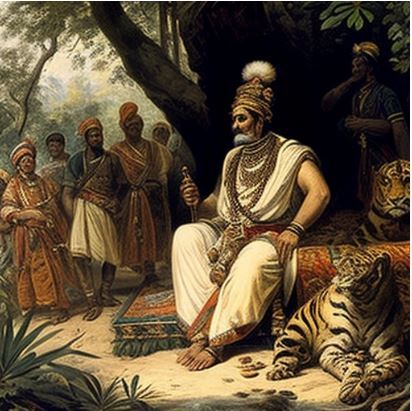
Impartiality: Verse 111
தகுதி எனவொன்று நன்றே பகுதியால் பாற்பட்டு ஒழுகப் பெறின்.
Meaning: Justice is considered to be virtuous when it is applied equitably to all, regardless of whether they are enemies, strangers, or friends.
Once upon a time, there was a wise and just king named Raj who ruled over a prosperous kingdom. King Raj was loved by his subjects for his fairness and impartiality, and he was widely respected for his unwavering commitment to justice.
One day, King Raj was approached by three individuals seeking his help. The first was a poor farmer who had been wronged by a wealthy merchant. The second was a soldier who had been accused of a crime he did not commit. And the third was a foreigner seeking asylum from a neighboring kingdom.
King Raj listened carefully to each person’s story and, after much contemplation, he declared that justice would be served. He called for a fair and impartial trial to determine the truth in each case, and he ordered that the same standards be applied to all parties, regardless of their status or background.
The farmer was awarded compensation for the damages he had suffered, the soldier was exonerated of the crime he had been accused of, and the foreigner was granted refuge and protection under the kingdom’s laws.
The people of the kingdom were amazed by King Raj’s impartiality and they praised him for his commitment to justice. They recognized that he had acted equitably towards all, regardless of whether they were enemies, strangers, or friends, and they admired his unwavering resolve to uphold the principles of fairness and equality.
King Raj’s reputation for justice and impartiality only grew from there, and he continued to be a beloved and respected ruler for many years to come. His example inspired others to follow in his footsteps and to strive for justice and fairness in all their dealings. And thus, his legacy lived on, serving as a testament to the power of impartiality and the importance of treating all people with dignity and respect.
